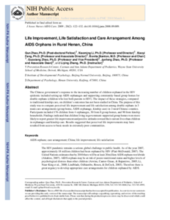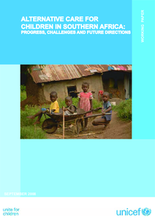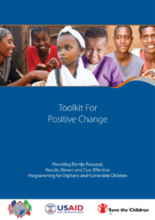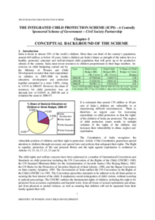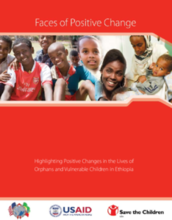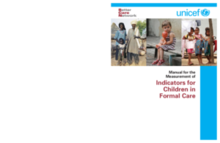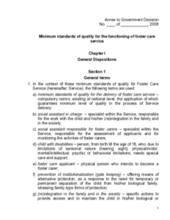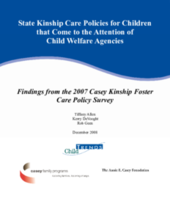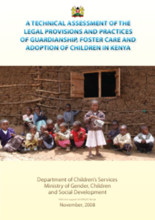Displaying 2081 - 2090 of 2222
This study aims to compare perceived life improvement and life satisfaction among double orphans in 3 main care arrangements (group home, AIDS orphanage, kinship care) in 2 rural Chinese counties.
This report, prepared for UNICEF East and Southern Africa Regional Office (ESARO) assesses the capacity in Malawi, South Africa, Swaziland and Zambia to manage alternative care systems for children.
Documents the strategies of The Positive Change: Children, Communities and Care (PC3) Program - a five-year (2004-2009) integrated and comprehensive program designed to provide care and support to more than half a million orphaned and vulnerable children and their families throughout the country of Ethiopia.
This document includes a portion of the individual worksheets accompanying the Manual for the Measurement of Indicators for Children in Formal Care.
In 2006 the Indian Ministry of Women and Child Development proposed the adoption of an Integrated Child Protection Scheme (ICPS), which was adopted and launched by the central government in 2009-2010. Recognizing chronic under funding of child protection services in the country and major gaps in the system, the ICPS was expected to significantly contribute to the realization of Government/State responsibility by creating a system that would effectively and efficiently protect children.
Highlights successes and lessons learned from the PC3 Program. Serves as a companion piece to the Toolkit for Positive Change
Manual to assist countries in strengthening their information system around children in formal care through data collection around 15 global indicators
This annex contains the Moldova government's "Minimum Standards of Quality for the Functioning of Foster Care." This document addresses compulsory norms, existing at national level, that guarantees a minimum level of quality in the process of
Explores the disparity in support given to children in formal foster care in the United States compared to those in informal kin arrangements
This technical assessment report uses a transformative social protection framework adapted for studying the provisions and practice in alternative care and adoption in Kenya.

